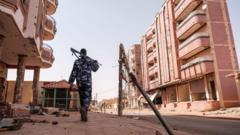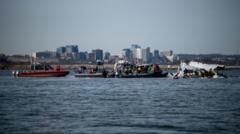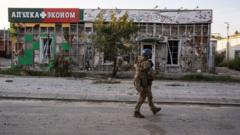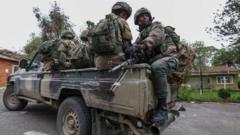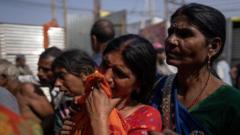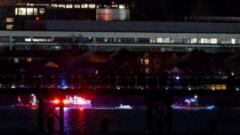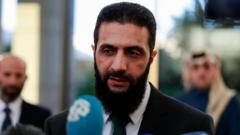The first-hand accounts from defectors reveal the dire training conditions and morale of soldiers sent into combat.
**North Korean Soldiers Deployed in Ukraine: Defectors Provide Insight**
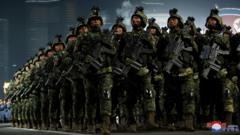
**North Korean Soldiers Deployed in Ukraine: Defectors Provide Insight**
Ex-soldiers discuss the conditions and capabilities of North Korean troops fighting for Russia in Ukraine.
Despite their loyalty to the regime and years of intense training, defectors from the North Korean military warn that the troops sent to aid Russia in the Ukraine conflict are suffering from severe deficiencies in nutrition and experience. Haneul, who courageously escaped North Korea in 2012, shared that soldiers are often malnourished, surviving on very limited rations that barely sustain them. Reports suggest that around 11,000 North Korean troops have been deployed to assist Russian forces in the Kursk region, with indications that the first casualties are already emerging.
The defectors assess that many of the active troops are members of the notorious Storm Corps, selected for their constructs and supposedly high morale. However, military experts note this unit is not accustomed to contemporary warfare, and the open landscape of Kursk differs significantly from their training in the mountainous terrains of North Korea. Online footage has depicted some of these soldiers as looking frail and ill-prepared, contrasting with the strong images portrayed by national propaganda.
As North Korea's government focuses on nuclear capabilities over military welfare, intelligence indicates the reality for these soldiers is dire, with reports of 100 fatalities already. Defectors highlight that despite challenges, the hierarchical loyalty instilled in these individuals could potentially offer them greater resolve compared to Russian troops. Many of these soldiers come from farming backgrounds, ingrained with the stark ideology of loyalty to the regime.
The unique challenges posed by language barriers have led to further operational incidents, such as accidentally firing on Russian troops. While defectors caution against underestimating these soldiers based on conditions, they also express doubts about their capacity to adapt to the fight outside of North Korea's confines.
As chaos unfolds, strategists speculate that a large-scale deployment of North Korean forces could lead to more severe outcomes in the Ukraine conflict. The regime appears willing to absorb casualties from less privileged backgrounds, which might not cripple internal stability. Many families of soldiers may view service as an honor, further complicating the propaganda battle and any potential for mass defections. Despite efforts to conduct psychological operations, obstacles remain significant, as defectors often cite an ingrained societal expectation against surrender.
Regime loyalty remains a powerful motivator among these soldiers, but with critical voices expressing hope for their safety, the question remains whether any will find the courage to defect in a moment of crisis, or if they will adhere to their stern ideological training in the face of uncertainty.
The defectors assess that many of the active troops are members of the notorious Storm Corps, selected for their constructs and supposedly high morale. However, military experts note this unit is not accustomed to contemporary warfare, and the open landscape of Kursk differs significantly from their training in the mountainous terrains of North Korea. Online footage has depicted some of these soldiers as looking frail and ill-prepared, contrasting with the strong images portrayed by national propaganda.
As North Korea's government focuses on nuclear capabilities over military welfare, intelligence indicates the reality for these soldiers is dire, with reports of 100 fatalities already. Defectors highlight that despite challenges, the hierarchical loyalty instilled in these individuals could potentially offer them greater resolve compared to Russian troops. Many of these soldiers come from farming backgrounds, ingrained with the stark ideology of loyalty to the regime.
The unique challenges posed by language barriers have led to further operational incidents, such as accidentally firing on Russian troops. While defectors caution against underestimating these soldiers based on conditions, they also express doubts about their capacity to adapt to the fight outside of North Korea's confines.
As chaos unfolds, strategists speculate that a large-scale deployment of North Korean forces could lead to more severe outcomes in the Ukraine conflict. The regime appears willing to absorb casualties from less privileged backgrounds, which might not cripple internal stability. Many families of soldiers may view service as an honor, further complicating the propaganda battle and any potential for mass defections. Despite efforts to conduct psychological operations, obstacles remain significant, as defectors often cite an ingrained societal expectation against surrender.
Regime loyalty remains a powerful motivator among these soldiers, but with critical voices expressing hope for their safety, the question remains whether any will find the courage to defect in a moment of crisis, or if they will adhere to their stern ideological training in the face of uncertainty.


